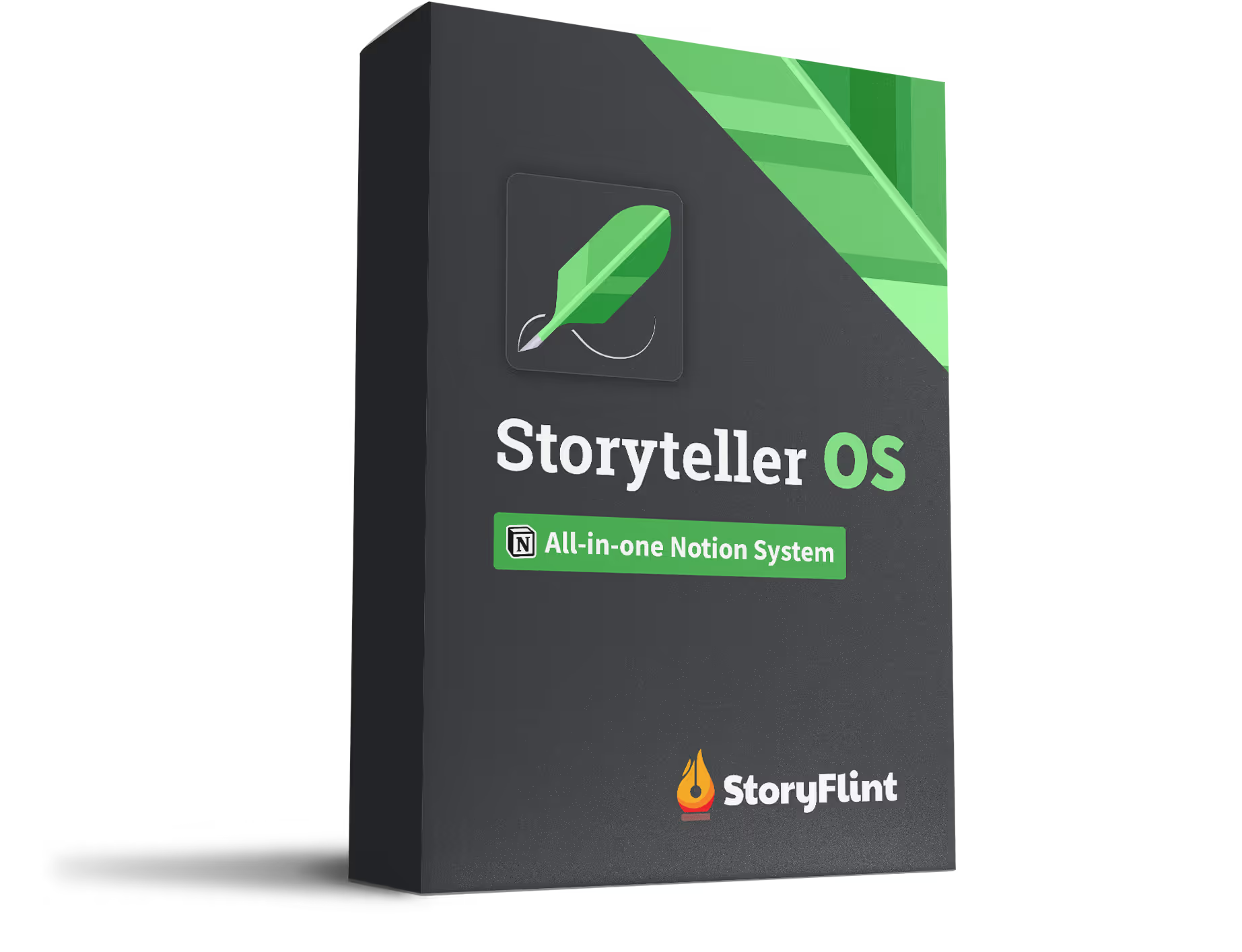Whether crafting a gripping fiction novel or an insightful nonfiction piece, research is a fundamental component of storytelling. It adds authenticity and depth, making your narrative more compelling and relatable. Here's a guide to conducting effective research for your story.
Why Research is Essential for Both Fiction and Nonfiction Stories
Research is the backbone of your story, grounding it in reality and allowing readers to immerse themselves in a believable world. In fiction, it enriches your narrative with accurate details that bring characters and settings to life. For nonfiction, thorough research is vital to establish credibility and authority in your storytelling.
“Research, as a first step, will get you excited. It will give you ideas. And it will help you choose a world, which is really the first thing you need to do.”
—Dan Brown
Benefits for Fiction:
- Authenticity and Realism: Research helps ground your story in reality, even if it's fictional. By understanding real-world elements, you can create believable characters and settings that resonate with readers.
- Idea Generation: Research can lead to unexpected discoveries that fuel new story ideas. The process of learning can uncover fascinating facts or events that inspire entire narratives.
- Cultural Sensitivity: Researching cultural nuances and traditions helps you portray diverse characters and settings respectfully and accurately, avoiding stereotypes and inaccuracies.
Benefits for Nonfiction:
- Credibility and Trust: Conducting thorough research not only positions your work as authoritative but also builds trust with your readers. When you provide accurate and verified information, they’re more likely to see you as a reliable expert in your field.
- Depth and Insight: Research enriches your storytelling, adding layers of depth and context. It enables you to explore topics more deeply, offering your audience a comprehensive understanding.
- Current Relevance: By staying informed through research, you can weave in recent developments and trends into your narratives. This approach makes your content timely and engaging for modern audiences.
Methods for Conducting Effective Research
“You never know where a cool story is gonna come from... that’s why you want to talk to as many people as possible.”
—Aaron Sorkin
Research can be approached through various methods, each offering unique insights:
- Explore Diverse Resources: Embrace a range of resources like books, documentaries, podcasts, online articles, and academic journals. This variety not only enriches your background knowledge but also offers multiple perspectives to enhance your story.
- Engage in Interviews: Connect with experts, historians, or individuals who have firsthand experience related to your topic. Prepare open-ended questions that invite detailed insights and personal anecdotes, adding richness and depth to your narrative.
- Experience Locations: Whenever you can, visit the places you’re writing about. Experiencing the location firsthand helps you capture sensory details and atmosphere, making your setting feel more vivid and authentic.
- Incorporate Personal Experiences: Draw from your own life when relevant. Sharing your experiences can bring authenticity to your characters and situations, offering a personal touch to your storytelling.
- Participate in Online Communities: Join forums and social media groups centered around your topic. Engaging with community members can unveil current insights and trends that may not be found in traditional resources.
- Observe and Reflect: Spend time observing the people, places, and events around you. This practice can spark ideas and provide real-world inspiration for character development and plotlines.
- Understand Historical Context: If your story is set in a specific era, dive into historical records, diaries, and biographies. This research will help you accurately portray the context and details of the period.
How to Conduct Research at Various Stages of the Writing Process
Before Writing
- Identify Gaps in your knowledge regarding your story's themes, settings, or characters. What do you still need to learn?
- Create a Research Plan that outlines what you need to discover and where to find that information. Think of this as your roadmap to storytelling.
During Writing
- Continuous Research may become essential as your story unfolds. Stay flexible and embrace new insights that can enrich your narrative.
- Note Integration is about seamlessly weaving your research findings into your storytelling. This enhances your narrative without overshadowing it—think of it as adding spice, not overwhelming the dish.
After Writing
- Fact-Checking is crucial to ensure that all details are accurate and consistent. This step strengthens your credibility as a writer.
- Feedback from knowledgeable readers or experts can shine a light on any inaccuracies and highlight areas that may need further exploration. Remember, seeking input is a sign of strength, not weakness.
Tips for Conducting Research
- Organize Your Research: Consider using digital tools like Scrivener or Notion to keep your research neat and categorized. This organized approach not only makes information easy to access but also helps you discover connections that can enrich your story.
- Balance Your Time: Make sure to carve out dedicated slots for both research and writing. Finding this balance is key; it prevents research from overshadowing your creativity and keeps your manuscript moving forward.
- Explore Digitally: Take advantage of resources like Google Street View, travel blogs, and online forums to explore different locations and cultures—all from the comfort of your desk.
- Categorize Wisely: Create a system to sort your research by themes, characters, settings, and plot points. This structured method ensures you can easily find the details you need and that nothing important slips through the cracks.
- Set a Research Agenda: Establish a clear agenda with specific goals and timelines for your research. Dedicating focused time to cover all necessary topics can help you stay on track and avoid distractions.
- Organize Your Files: If you prefer hard copies, arrange your printouts and notes in labeled binders or folders. Keeping these in a dedicated space ensures you can access them easily when needed.
- Create an Index: Develop an index or table of contents for your research. Whether it's a separate document or a feature in your digital tool, this allows you to quickly locate specific topics or data.
- Cross-Reference Ideas: Link related information across different categories. This method helps uncover connections between diverse topics, adding greater depth to your narrative.
- Update Regularly: Make it a habit to review and refresh your research files consistently. Incorporating new findings and removing outdated information keeps your research relevant.
- Use Visual Boards: Consider utilizing visual boards or mind maps to organize your ideas and research visually. This technique can be particularly effective for visualizing connections and shaping your plotlines.
Examples of Effective Research in Storytelling
Incorporating thorough research into storytelling can elevate a narrative from good to extraordinary. Here are some compelling examples of how effective research has enriched storytelling:
The Da Vinci Code
Dan Brown's meticulous research into art history, religious symbols, and secret societies grounds the novel in a reality that feels both mysterious and believable. This level of detail not only draws readers into the world he creates but also adds layers of intrigue and authenticity that keep audiences engaged.
Jurassic Park
By blending scientific research with fiction, Michael Crichton created a believable and thrilling narrative. His understanding of genetic engineering and paleontology brought a sense of realism to the story, allowing readers to suspend disbelief and immerse themselves in the adventure.
The Hunt for Red October
Tom Clancy's extensive research into military technology and procedures lent his narrative an authenticity that captivated readers. His attention to detail in describing naval combat and espionage tactics created a gripping and realistic thriller that resonated with audiences and military professionals alike.
The Handmaid's Tale
Margaret Atwood's use of historical and contemporary events to inform her dystopian world adds depth and realism to the story. Her research into totalitarian regimes and women's rights issues created a chilling yet plausible society that prompts reflection and discussion among readers.
The Kite Runner
Khaled Hosseini's personal experiences and research into Afghan culture and history lend authenticity to his storytelling. The novel's vivid depiction of Afghan life before and after the Soviet invasion adds depth and emotional weight, making the story resonate with readers worldwide.
Conclusion
Research is a vital and rewarding part of the writing process, providing insights and inspiration that can significantly enrich your storytelling. By approaching your research with strategy and creativity, you’ll be able to craft narratives that truly resonate with your audience.
So, dive into your research! Embrace the journey, and you'll see your stories come alive in ways you never imagined. Remember, every bit of knowledge you gather can empower your writing and fuel your passion for the craft.





